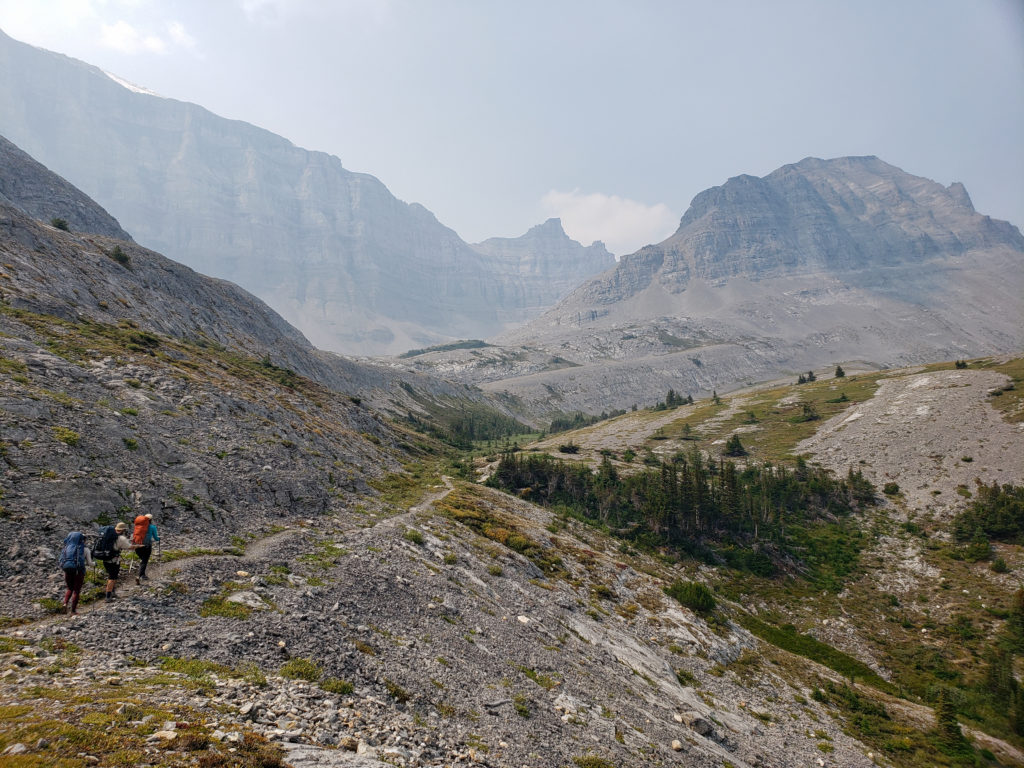
I would like to acknowledge that this hike past through the ancestral and traditional territories of Indigenous Peoples. The Blackfoot Confederacy, Tsuut’ina, Stoney (Ĩyãħé) Nakoda, Cree, Ktunaxa, and Métis who have called the Rocky Mountains home since time immemorial. I acknowledge the many Indigenous Peoples in Canada whose footsteps have marked these lands for generations and I am grateful to be a visitor in these lands.
I had tried to take on the thrills of hiking the Northover Ridge in Kananaskis Provincial Park twice with Siobhan. Both this year, 2023, and in 2022 we had our plans dashed by smoke from forest fires. In 2022 I was able to book a last minute trip on the north section of the Rockwall in Kootenay NP which was a fantastic three days on the trail. Hiking on the Rockwall is always an amazing experience and you could not ask for a better Plan B. In August of 2023 I once again found myself trying to find a hike to replace the Northover trip on short notice. The fires where more concentrated in the southern end of Banff NP and Kananaskis Prov Park so I looked north. I came up with a three day hike comprising of day 1 hiking into Pinto Lake over Sunset Pass from hwy 93. Day 2 would be a hike over Pinto Pass and Michelle Pass to camp at Michelle Lakes. A Final day of hiking would have us going over Owen Pass and down Owen Creek to the trailhead on Hwy 11 to complete the trip. There was still a possibility of smoke on the trip so after discussion among the group the trip was whittled down to just two days comprising of an out and back to Pinto Lake. I was very disappointed to lose Michelle Lakes. Michelle Lakes offers in my opinion unrivalled alpine camping but the desire from the group to do three days was just was not there. Siobhan and a friend did complete an alternate plan when they declared they would complete the hike from Pinto Lake up to Michelle Lakes and down Owen Creek in a single day. While the distance is not all that long at just 23 km I knew the trail was incredibly rough descending Owen Creek. Back when I hiked Section E of the Great Divide Trail it had taken me over 13 hours to complete the same route. On this trip I was not feeling mentally or physically ready to tackle a challenging 13 hour day over rough terrain.
The number of people in the trip fluctuated a bit in the days leading up to the hike but we ended at five. It would Siobhan and Kylie (older sister), Charlie who is a friend of Siobhan’s plus Ken (who I have been on numerous trips with, Brazeau Loop in 2017, Sawback 2017 and the Rockwall in 2020) and myself. The trip took on an extra special meaning for me as it was the first time I had gone backpacking with Kylie since 1993.
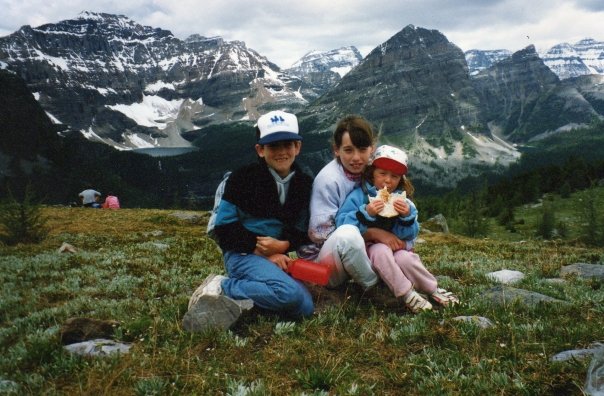
A small but significant detail I did not know about Pinto Lake is that camping there requires an Alberta Public Lands Camping Pass. Ken was doing a recon of the trip on his phone when he came across a post where people were complaining about being charged for camping without a pass. Apparently the requirement to purchase a pass came in during Covid due to the high number of people utilizing public lands some of whom were camping irresponsibility. I will be honest that I had never heard of the pass. It was quite the process to determine when camping on public lands in Alberta if you require a camping pass because there are numerous designation of public lands in Alberta. The pass is not required if you are camping in:
- Wildlands Provincial Parks,
- Wilderness Areas
- Ecological Reserves,
- Heritage Rangelands
- Natural Areas
The area around Pinto Lake carries the designation Job/Cline Public Land Use Zone (PLUZ). Public Land Use Zones are not on the exempt list therefore a camping pass is required.
I found the best place to get information on camping on Public Lands is here. The web page explains how to purchase a pass, we used the AlbertaRELM app, and has links to maps to determine if where you are camping requires a pass. The best map in my opinion is the detailed interactive map that will tell you if where the location you planning on camping requires a camping pass. The interactive map is tad slow to load and a cumbersome to use but if you have a little patience you can zoom into the place where you are going to camp, click on the screen and determine if it needs a pass. The process is:
- After clicking on the screen a dialogue box will come up and that allows you to scroll between screens.
- Scroll over to the second screen to find the TYPE for the area you are camping in, for me the dialogue box for Pinto Lake it listed the “TYPE – PLUZ”.
- On the third screen there is a list of the areas that do not require a Public Camping Pass. I looked for PLUZ but it was not on the list therefore I was able to confirm that we needed to purchase a Public Lands Camping Pass.
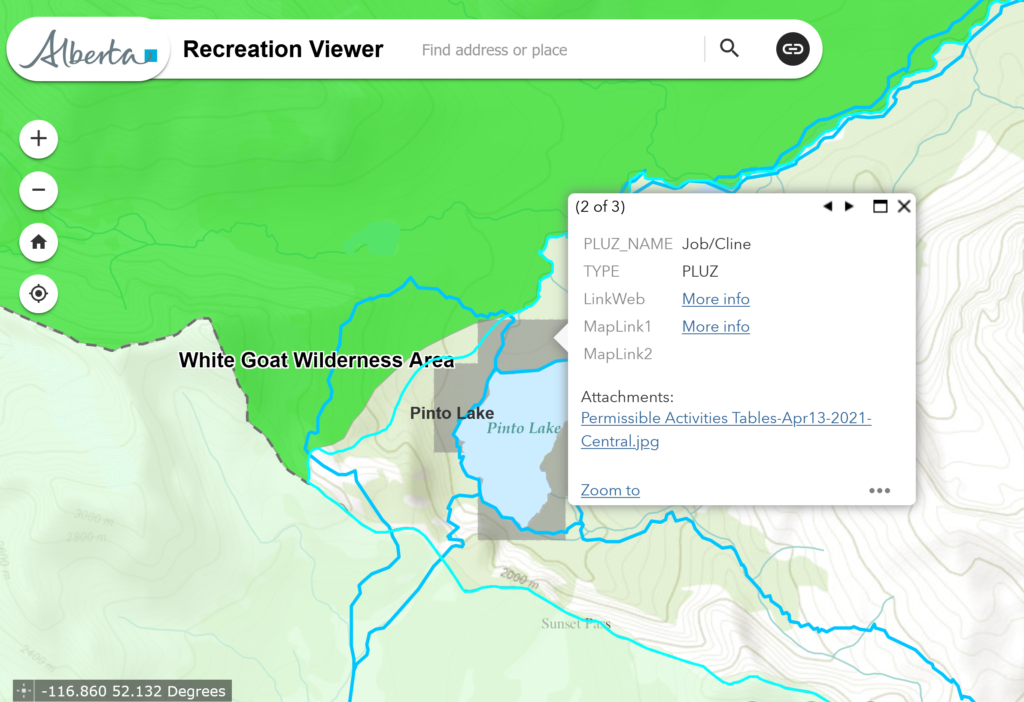
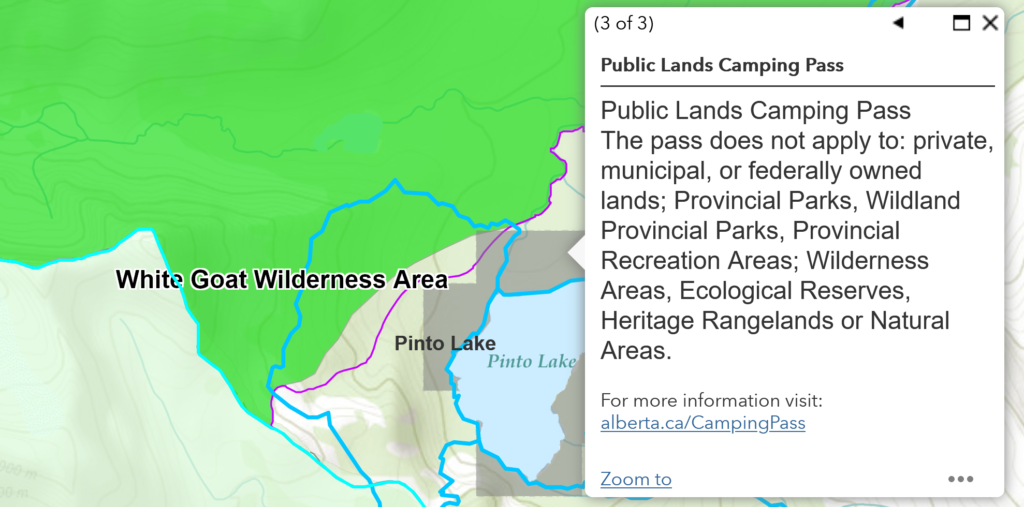
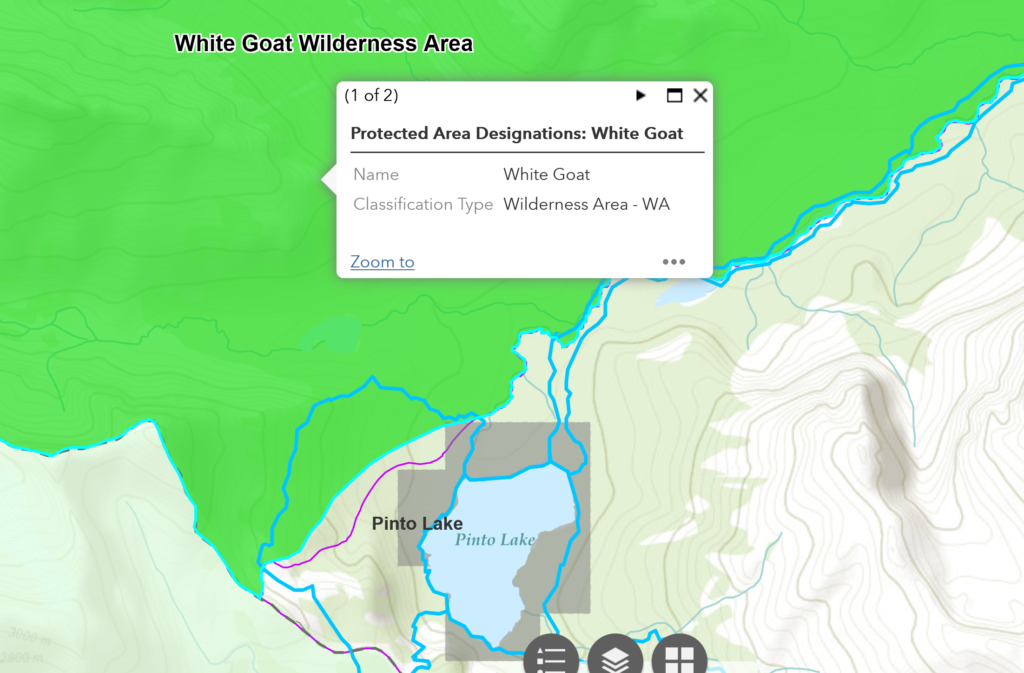
An opportunity that was missed on this trip was bringing Margaux. The original trip was to hike the Northover Ridge which I felt was not appropriate for taking a dog on. I guess that the thought that this was not a trip for Margaux just remained stuck in my brain and the question of bringing Margaux along never came up. Too bad she would of had a blast.
With all the planning complete it was time to head out on a fun little backcountry trip.
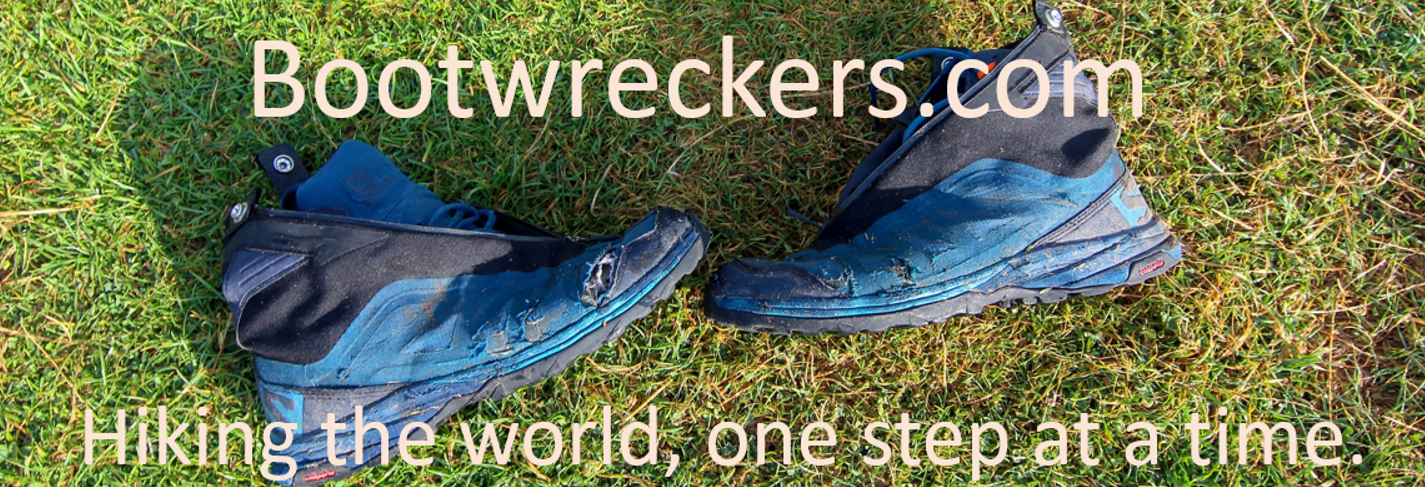
Hello! I’m wondering if you needed an extra pass to park at sunset pass overnight? Looks lovely !
Sorry for the late reply. If you camped at Sunset Pass, you would be in the Job/Cline PLUZ and allowed to camp. Make sure you are past the National Park Boundary. You would need the Provincial Public Lands Camping Pass.